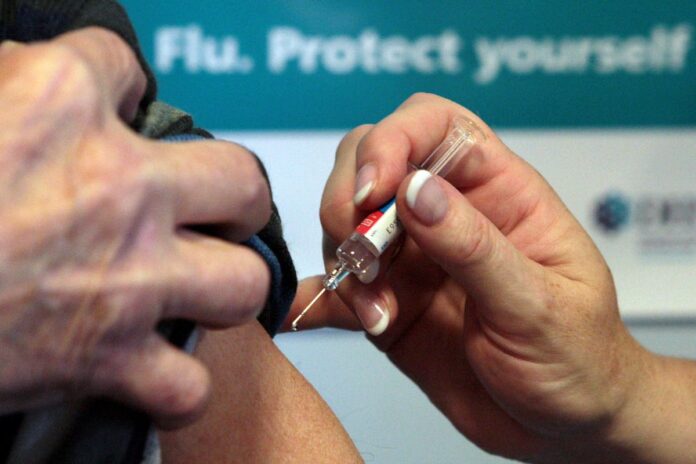Scientists say ‘flu is back’ after a hiatus during the coronavirus pandemic – and the NHS will be under increased pressure because of it.Experts have urged those eligible to take up their offer of a flu jab as figures suggest an early uptick in cases.Levels of flu in England are already on the rise, despite many flu seasons peaking in December and January.Some young children have already needed intensive care, data from the UK Health Security Agency (UKHSA) shows.Rates are estimated to be highest among five to 14-year-olds, with 12% of laboratory samples from this age group testing positive, according to the latest flu report.Hospital admission rates are highest for those under the age of five.But, overall, levels of flu are still low, meaning it is too early to predict how big the wave of infections will be.Speaking at the Science Media Centre, Sir Peter Horby, professor of emerging infectious diseases and global health and director of the Pandemic Sciences Institute at the University of Oxford, said: ‘The key thing to say really is that flu is back.’There’s clearly been a period where we’ve been relieved of the flu pressures but there’s clear evidence from other countries that flu is back in circulation.’In the UK, we are starting to see early signs of flu circulation. Some of the early indicators are going up; we’re seeing increases in the proportion of lab tests that are testing positive for flu, we’re starting to see increases in the numbers of people phoning NHS 111 with cough, etc, and we’re starting to see increases in accident emergency consultations with influenza-like illness.’What we do know is that although influenza seasons are very variable, they can have a very big impact and in a big season they can put enormous pressures on the healthcare system.’One of the last big seasons in 2017/18, there were an estimated sort of 45,000 admissions with influenza-related disease resulting in about 400,000 bed days in the NHS and about £3,000 per patient.’ There is substantial risk of big pressures on the NHSProfessor Sir Peter HorbyProf Horby added: ‘Going into the winter, we know the NHS is already under quite extreme pressures with the Covid backlogs and other issues and we will likely see staffing pressures as well if staff are off with influenza or Covid or other infections.’There is substantial risk of big pressures on the NHS.’Influenza vaccination is one of the most effective interventions to prevent you getting influenza and getting severe disease.’It also does prevent transmission so it can reduce the risk to yourself, the risks to family members, etc, but also reduce the risk of pressures on the NHS.’So if you are eligible for vaccination, the time to get vaccinated is right now. I would really encourage people to take up the offer for influenza vaccination, but also for Covid boosters as well.’Asked about the rise in hospital admissions among young children, Prof Horby added: ‘It is not unusual to have hospitalisations in that age group. I think it’s too early to call a trend at the moment because the numbers will be small.’Meanwhile, Dr John McCauley, director of the World Health Organisation Collaborating Centre for Influenza, said: ‘There was basically no flu around due to the interventions imposed for Sars-CoV-2 for the northern hemisphere (for the) 2021/22 season.’We’re seeing it pick up somewhat again over the last few weeks.’He said before the pandemic, experts were tracking a new H1N1 influenza virus – a derivative of swine flu – in South Africa and two H2N3 flu strains from Cambodia and Bangladesh.It appears the Bangladesh strain is the one in circulation this year – and the one the flu jab is geared up to tackle, he added.Asked whether there are specific symptoms which differentiate the strain from Covid-19, Dr McCauley suggested people take a Covid-19 test.But Prof Horby added: ‘Some prediction models will say, ‘This constellation of symptoms is more likely to be flu than Covid’, but generally those things just don’t work very well.’And, actually, it’s not worth trying to differentiate those viral infections by symptom cluster – there will often be so much overlap that it’s impossible to accurately tell.’He said he is ‘surprised’ Covid-19 cases have peaked already but warned of a potential future wave if a new variant – BQ1 – ‘picks up’.Meanwhile, Dr McCauley said the H1N1 virus has ‘moved on somewhat’ and it has been recommended the southern hemisphere has an H1N1 vaccine next year.The UKHSA will publish its next flu update on Thursday.
‘Flu is back’ – scientists warn of risk to NHS as data shows early rise in cases
Sourceindependent.co.uk
RELATED ARTICLES


